The EU offers the South Mediterranean money for reforms
Adelina Marini, March 10, 2011
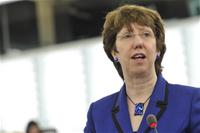 The European Commission has come up with a proposal for a joint communication (between the Commission, Parliament, Council, the Economic and Social Commitee and the Committee of the Regions) for a new Partnership for Democracy and Shared Prosperity with the South Mediterranean. The document is an attempt for a change of EU's relations with those partners from North Africa who commit to specific and measurable reforms. Moreover, it proposes an entire change of approach - the simple pouring of money in every country to be replaced by allocating money on the basis of incentives and differentiation: those that go further and faster with reforms will be able to count on greater support from the EU.
The European Commission has come up with a proposal for a joint communication (between the Commission, Parliament, Council, the Economic and Social Commitee and the Committee of the Regions) for a new Partnership for Democracy and Shared Prosperity with the South Mediterranean. The document is an attempt for a change of EU's relations with those partners from North Africa who commit to specific and measurable reforms. Moreover, it proposes an entire change of approach - the simple pouring of money in every country to be replaced by allocating money on the basis of incentives and differentiation: those that go further and faster with reforms will be able to count on greater support from the EU.
And obviously already having the experience with countries that constantly promise reforms but predominantly absorb money without showing any specific results, the Commission proposes any closer cooperation to be based upon a set of minimum benchmarks (as they are very well known in Bulgaria), accompanied with assessment of the work that is done.
The document divides cooperation with the South Mediterranean to six basic segments: democracy and institutional building; tackling challenges of mobility; economic development; ensuring of maximum results from trade and investments; enhancing sectoral cooperation; and regional and sub-regional inclusion.
Political cooperation
According to the document, Partnership for Democracy and Shared Prosperity should be developed on the basis of three key elements:
- democratic transformation and institution-building, with a particular focus on fundamental freedoms, constitutional reforms, reform of the judiciary and the fight 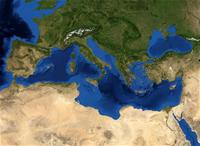 against corruption;
against corruption;
- a stronger partnership with the people, with specific emphasis on support to civil society and on enhanced opportunities for exchanges and people-to-people contacts with a particular focus on the young;
- sustainable and inclusive growth and economic development especially support to small and medium enterprises, vocational and educational training, improving health and education systems and development of the poorer regions.
Partnership could be granted to those countries who commit themselves to adequate monitoring and who hold fair and free elections. So far, the most appropriate at this stage are Tunisia and Egypt. The European Union has already allocated additionally 17mn euro for Tunisia for immediate and short-term support for democratic transition and assistance to impoverished inland areas. Regarding Egypt, the document says, it is still too early to announce package support as the authorities in Cairo have not requested it yet and have not defined their specific needs.
In the very beginning of the uprising in North Africa (that in Tunisia and Egypt in particular) the voices in the European Union, including that of Bulgarian Foreign Minister Nickolay Mladenov, were many, saying that one of the main EU policies to the region - the European Neighbourhood Policy (ENP) had already done its job, and that the main mistake was that little attention was paid to the civil sector in these countries. A fact which is currently felt extremely strongly in the attempts to consolidate stable government from fractured, persecuted and often in exile opposition.
For these reasons the Communication points out that during the spring review of the ENP (in April) proposals will be made to enhance EU support for civil society organisations in the south neighbourhood. For the purpose a Civil Society Neighbourhood Facility will be created, dedicated to developing the advocacy capacity of civil society organisations and increasing their ability to monitor reform and participate effectively in policy dialogues.
EU's immigration problem
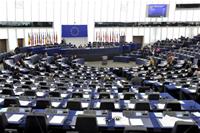 A key place is given in the Communication to illegal immigration which, however, is not mentioned not even once in the entire document, 17 pages long. It is referred to as Partnership for Mobility, an important element of which will be strengthening of capacity building in the Mediterranean countries on border control, as well as more effective law enforcement cooperation to improve security throughout the Mediterranean. The main goal of the proposed measures is to ensure that the movement of persons between the EU and a third country is well-managed.
A key place is given in the Communication to illegal immigration which, however, is not mentioned not even once in the entire document, 17 pages long. It is referred to as Partnership for Mobility, an important element of which will be strengthening of capacity building in the Mediterranean countries on border control, as well as more effective law enforcement cooperation to improve security throughout the Mediterranean. The main goal of the proposed measures is to ensure that the movement of persons between the EU and a third country is well-managed.
This covers initiatives such as visa and legal migration arrangements; legal frameworks for (economic) migration; capacity building to manage remittances and for efficient matching of labour demands and needs, return and reintegration programmes, upgrading of the asylum systems to EU standards etc. In return for increased mobility, partners must be ready to undertake increasing capacity building and provide appropriate financial support for border management, preventing and fighting against irregular migration and trafficking in human beings, including through enhanced maritime surveillance; and effective fight against trans-border organised crime and corruption.
In the shorter term the Commission will work with member states on legal migration legislation and visa policy to support the goal of enhanced mobility, in particular for students, researchers and business persons. Besides, EU's executive calls on legislators to quickly adopt the directives on third countries seasonal workers which will also contribute to better mobility to the EU.
Economic cooperation
The Communication pays serious attention to assisting South Mediterranean countries in agriculture and fisheries, trade services and free trade areas. The Commission is ready to support agriculture in these countries through a new initiative - a European Neighbourhood Facility for Agriculture and Rural Development. The programme would build on EU best practice in developing rural areas.
Investments are proposed also for administrative capacity building, aimed at facilitating moderinisation of agriculture, conformed with EU's quality standards and with the food safety standards - something for which the EU has insisted for quite a lot of time as far as third countries products are concerned. According to the 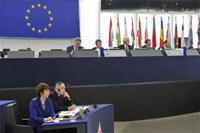 Communication, this mechanism could be developed in close cooperation with the Food and Agriculture Organisation, the Word Bank and probably the European Investment Bank.
Communication, this mechanism could be developed in close cooperation with the Food and Agriculture Organisation, the Word Bank and probably the European Investment Bank.
An interesting element in the document is the proposal for the creation of an EU-South Mediterranean Energy Community. In order to ensure security of its gas and oil deliveries from the countries in the region, the EU sees a clear potential for building an EU-Mediterranean partnership in the production and management of renewables, in particular solar and wind energy, and in having a joined-up approach to ensuring energy security. The biggest renewables project is being worked precisely in the region - the Desertec, work on which is at risk right now because of the events in North Africa.
"It is desirable to open a credible perspective for the integration of the Southern
Mediterranean in the EU internal energy market based on a differentiated and gradual", is written in the Communication. In the mid- and longer term this means the formation of energy community between the EU and the Maghreb countries (Morocco, Algiers, Tunisia, Libya and Mauritania), and at a later stage could be given a thought on gradual expanding toward the Mashreq countries (Egypt, Jordan, Lebanon, Syria and the Occupied Palestinian territories).
The proposal for a joint Communication was presented in the European Parliament on Wednesday (March 9th) by EU High Representative for Foreign Affairs, Lady Catherine Ashton. The document is discussed today by EU foreign ministers during their extraordinary Foreign Affairs Council in Brussels so that it could be further debated by EU leaders at their special European Council, dedicated on Libya on Friday (March 11).
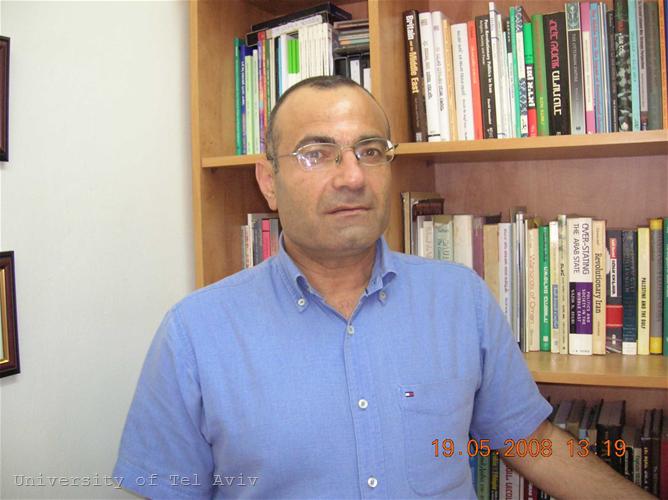 | © University of Tel Aviv
| © University of Tel Aviv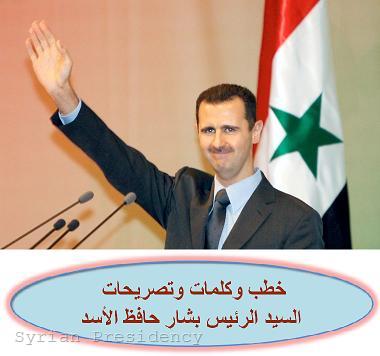 | © Syrian Presidency
| © Syrian Presidency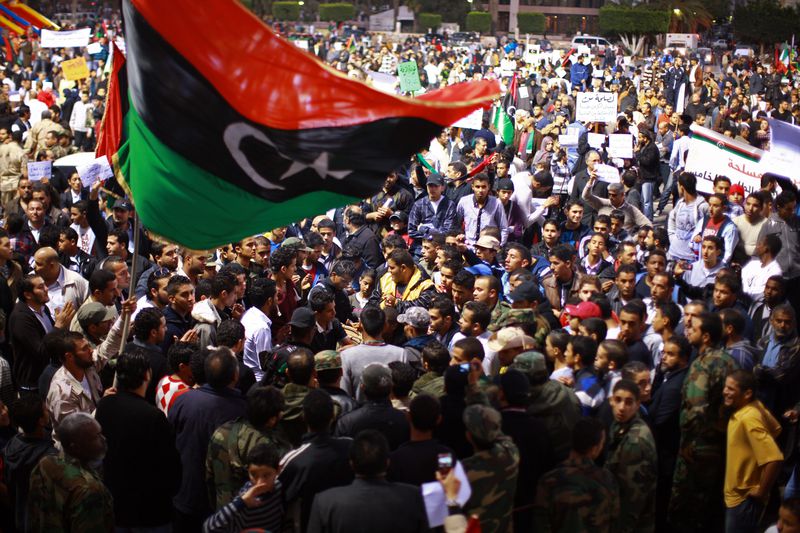 | © UN
| © UN